Not so pearly whites: the unexpected causes of tooth decay, from fruit tea to brushing after breakfast
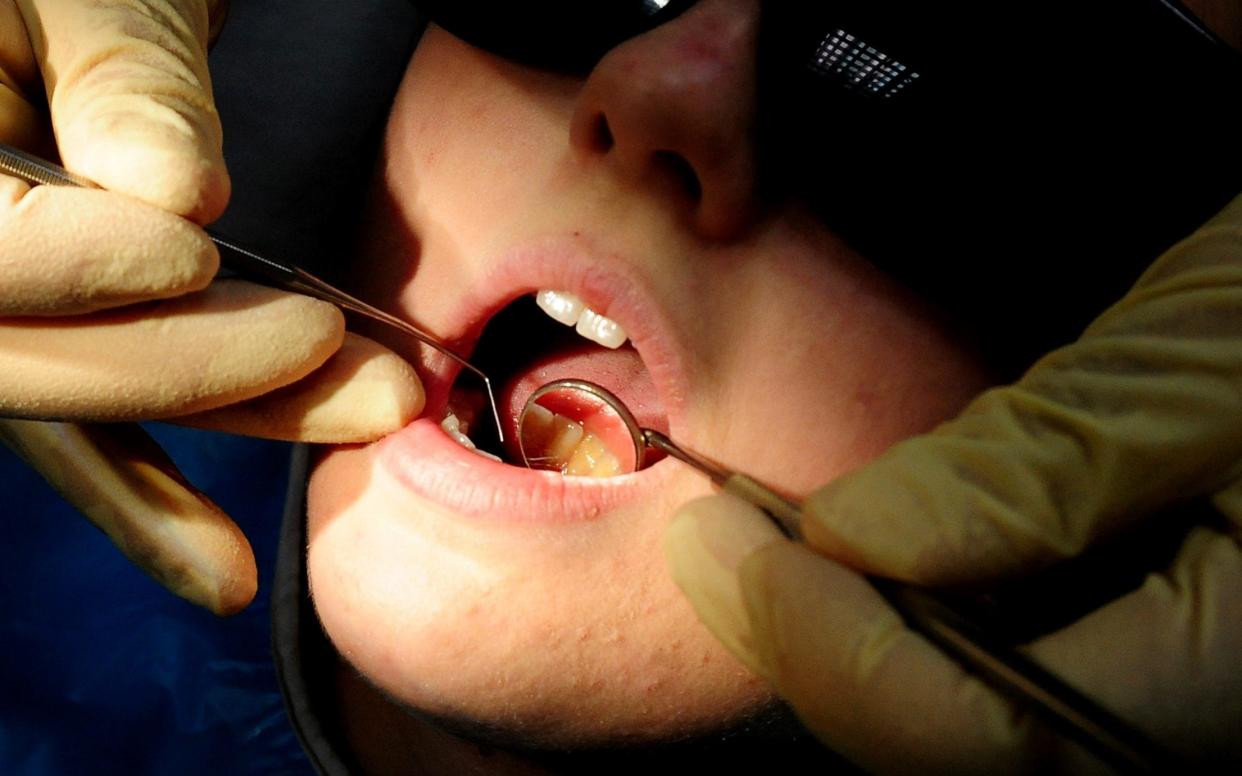
Fruit tea has become incredibly popular over the past few years, with sales increasing as more traditional teas decline. While there may be less caffeine in these drinks, a new study has brought to light an unexpected danger of drinking them: tooth erosion.
More specifically, drinking fruit tea between meals. The research, from King's College London and published in the British Dental Journal, warned that fruit teas and diet drinks could leave us 11 times more likely to experience tooth erosion. Consuming the same foods and drinks – which include highly acidic salt and vinegar crisps and the popular lemon water – at meals reduced the risk by half.
"The best protection for your teeth against tooth decay or erosion is your own saliva", says dentist Dr Toby Edwards-Lunn. "It acts as a natural buffer. During a meal, there's loads of saliva, it's your body's natural defence against extremes of acid and alkali. Although not ideal, and we prefer you to have water which is pH neutral, it's definitely better if you're going to have an acidic drink. It'll get washed away by all the saliva."
Between meals, Dr Edwards-Lunn explains, acidic and sugary foods and drinks should be avoided. "Your saliva rate goes down. At 11 o'clock you've got a dry mouth, have been chatting in the office or on the phone, and it's nice to lubricate your mouth with a cup of tea. That's a terrible time to stick acid in your mouth, it'll sit there for a couple of hours without being buffered by saliva. Anything that is cariogenic [causing tooth decay] should be avoided between meals."
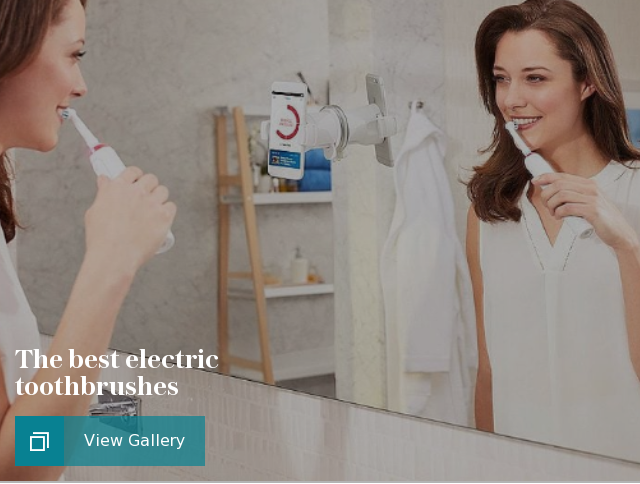
If you can't go without the late-morning pick-me-up, coffee included, the expert suggests rinsing your mouth regularly with water, and chewing sugar-free gum or having a sugar-free mint.
Over the past five years, the number of children and teenagers undergoing tooth extractions has increased by 17pc. Tooth extractions are most commonly performed on decayed teeth. While the recent report focused on tooth erosion rather than tooth decay, the effects are similar.
"Tooth decay is a disease process", Dr Edwards-Lunn continues. "It's caused by plaque, which utilise carbohydrates, and it's easier if they use sugar as it's already broken down. The offshoot of the plaque digesting the sugar is it produces acid, which breaks down the tissue, causing tooth decay.
"Erosion comes from extrinsic acids which cause mineral loss. The reason they get confused is that the end result is the same. Those acids come from lots of places, such as our diet or our stomach – many people suffer from acid reflux, where acid can come up and sit in the mouth."
The research simply confirms what dentists have long known. "They've looked at different foods and modern diet habits. Fruit teas are very popular these days, and there's a fad for lemon water as a cleansing thing. Everyone already knew about cola. All carbonated drinks have carbon dioxide, which is incredibly acidic."
Below, Dr Toby Edwards-Lunn, who is the co-founder of Dr Heff's Remarkable Mints, guides us through the surprising causes of tooth decay that most of us encounter on an almost daily basis.
Foods, drinks and habits to avoid
Brushing (at the wrong times)
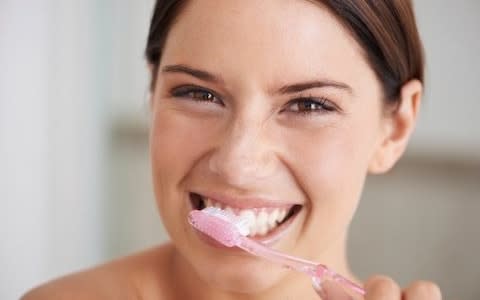
"If you're having acidic foods or cariogenics, you need to brush before you have them. Afterwards, your teeth will be softened," says Dr Edwards-Lunn. And that probably means changing the habit of a lifetime...
"If your breakfast contains acid or sugar, brush before breakfast and rinse your mouth out with water" he continues. "If you have sweet things, wait 45 minutes to an hour to brush." That's right: you should be brushing before breakfast, not after. That way, you eradicate the plaque from your teeth before the cereal's sugar can interact with it to produce acid and lead to decay.
Similarly, says Dr Edwards-Lunn, "If you've gone out and had a prosecco evening, or an evening on acidic foods and drinks, wait 45 mins to an hour before you brush. Or even brush before you go out, and rinse your mouth when you get back to get rid of that acid."
Brushing too hard? "Always get your dentist's advice on how hard to brush. Most electric toothbrushes have a pressure indicator which will stop you brushing too hard."
Wine

"Wine is acidic, so it'll give you that erosion. White wine especially, but all wine, to be honest.
"There was something in the news recently about wine being good for the teeth due to certain polyphenols in grapes, which are similar to what we use for Dr Heff's mints, and can protect your teeth. Actually, the opposite is true, because wine is acidic and bad for your teeth.
"The polyphenols are from grape seeds, and grape seed extract would be good. But no one wants to drink that. It doesn't counteract the acidity at all."
Milk
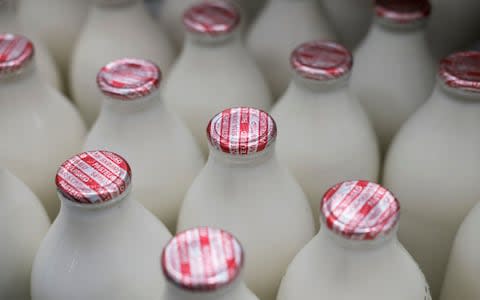
"Milk is cariogenic, which means it can cause decay. Milk has massive health benefits, but should be drunk during meal times. Definitely not last thing at night, and never leave a baby with milk in a bottle for them to suck on and then go to sleep and wake up again and suck on again.
"If you have it with cereal, you'll most likely have it with sugar as most cereals are sugared. But because it's in meal time, the advice I give to patients is, if you're having sugar, having it at those three meal times is the best time, because you have loads of that natural saliva buffering everything."
Medications
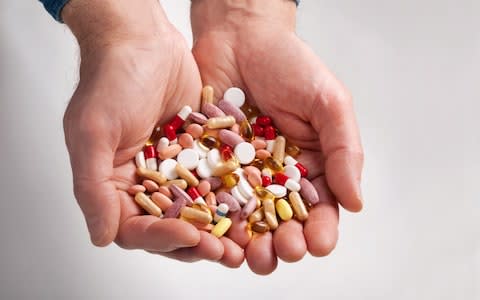
"We can get quite confused with medication. Allergy and cold medications will affect the saliva rate in your mouth. If you're taking them now and again, it's not a problem. But if you're on them a long time, you can get something called xerostomia, or dry mouth.
"Anyone with a dry mouth, because they don't have that saliva, the natural buffering protection fluid on their teeth, is at more of a risk of tooth decay and erosion.
"Other medications, especially chewable medications, have lots of sugar. A sugar-free alternative or making sure you brush your teeth correctly (before you take them), is essential, so there's no plaque on your teeth to decay."
Chewable vitamins
"A lot of them have sugar in them, so look for a sugar-free option, using xylitol as a sweetener, that's always a good one. If there isn't a sugar-free option, timing your brushing so you do it before the vitamins is essential."
Bread, cereals and starchy foods
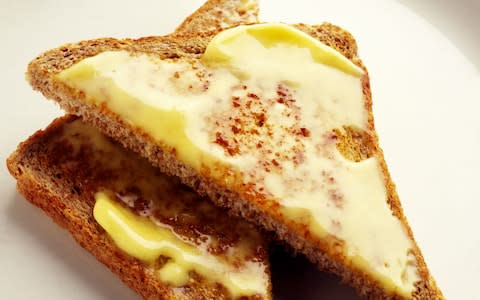
"Anything starchy can be broken down into constituent parts - sugars, glucose - and that's what the decay-forming bacteria use. Most of us don't chew on our bread for long enough to start breaking down the starch in the mouth. Just make sure to wash down your sandwich or toast with lots of water, so nothing gets stuck in the mouth, you should be absolutely fine. It has potential but it's not high risk."
Dried foods, raisins
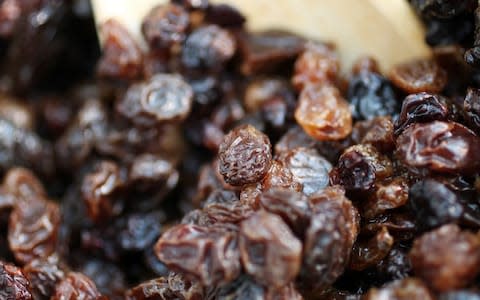
"It's sugar, so absolutely. They're really sweet, that's why we like them. Kids love strips of dried fruit which are really cariogenic. Again, it's fine as part of a balanced meal, but had between meals, it's really likely to cause tooth decay."

 Yahoo News
Yahoo News 
